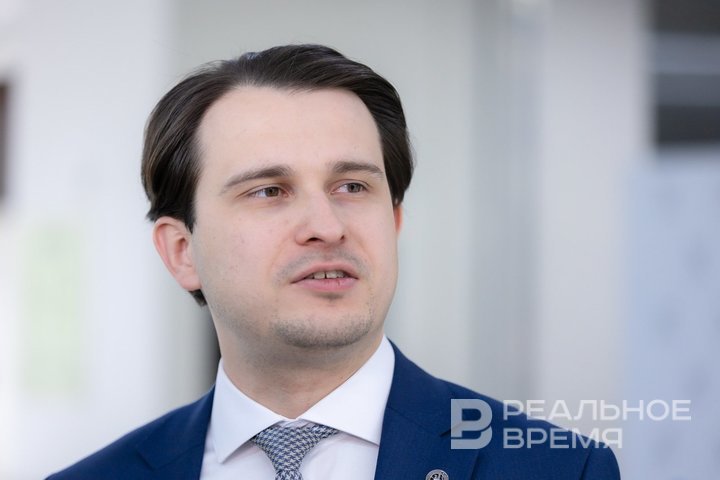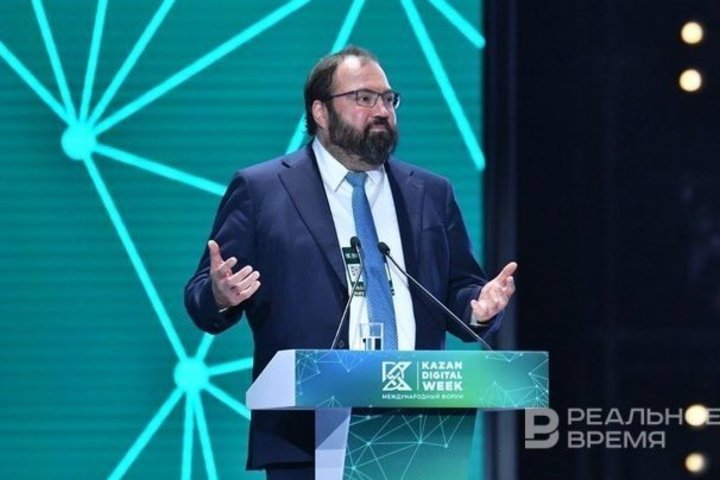‘Our minister’s eyes nearly popped out’: AI calculated the estimate faster than GISU
Cyberattacks are on the rise in the country, while in Tatarstan, AI technologies are still being tested on animals

“The goal is to increase the number of AI users by 50% by 2030, but it is still met with some skepticism," said Bulat Gabdrakhmanov, Deputy Minister of Digital Development of Tatarstan, during a meeting with the IT community. The ministry recently presented an AI development to the republic's Minister of Construction, Marat Ayzatullin, which showed nearly a 100% match with the conclusions of GISU. “The important thing is that it matched," the attendees joked. Currently, corporations and private clients are ready to invest in domestic software updates and cybersecurity. Since the beginning of 2022, the volume of domestic cybersecurity solutions has grown by 50%, reaching 334 billion rubles, with forecasts predicting it will rise to 715 billion rubles by 2028. For more details, read the full article in Realnoe Vremya.
Number of cyberattacks on businesses has increased by 2.5 times
Russian businesses remain the primary target for foreign hackers, with the number of cyberattacks continuing to rise, said Yury Marinichev, IR Director at Positive Technologies, during a thematic IT conference in Kazan. According to the latest data, last year the number of attacks increased by 2.5 times, and the total number of critical incidents that resulted in financial losses or operational disruptions reached nearly 30,000.
The need to build stronger defenses is driving additional expenses. Interest in domestic solutions has surged following high-profile incidents. For example, in March, the oil company LUKOIL was subjected to a massive hacker attack that caused significant damage to the business, as noted at the conference. The most frequent targets of cyberattacks have been industries, banks, and telecommunications companies.

By the end of 2024, the volume of the Russian cybersecurity services market increased by 30%, reaching nearly 600 billion rubles. The biggest growth was seen in software services (up 46%, to 273.6 billion rubles), IT services (up 35%, to 206.6 billion rubles), and hardware (up 19%, to 113.2 billion rubles).
The market is growing rapidly, but each vendor has its own dynamics. According to Yury Marinichev, Tatarstan companies are switching to domestic technologies when they face cybersecurity risks. Interest in these solutions will be further spurred by increased accountability for data breaches. Marinichev explained that discussions are currently underway regarding the introduction of turnover fines, which could amount to around 1 billion rubles, in order to incentivize companies to protect customer data properly.
Preferences only for our own
The threat of Western vendors returning does not cause concern. “Industry support is a top priority for the government. [The Minister of Digital Development of Russia] Maksut Shadayev assured that if they return to the market, support measures will only be provided to Russian companies," Marinichev said. He referred to forecasts from the Center for Strategic Development, which predicted that further growth would reach 23.6% per year until 2028, enabling the market to reach 715 billion rubles.

On the other hand, there is a limiting factor in the form of the Central Bank's high key interest rate. As noted by IR Director of the Astra Group, Vladislav Anshakov, clients continue to experience shock from this. In the first quarter, there has been a slowdown, with customers suspending purchases of solutions.
Tatarstan's IT companies are facing growth limitations in the Russian market and are now targeting the Middle East. As reported by the Deputy Minister of Digital Development of Tatarstan, Bulat Gabdrakhmanov, an innovative IT hub is currently being established in Qatar. The joint venture is being created by Tatarstan's IT park and AL ADID Business Holding, a company owned by the Prince of Qatar. The joint venture is being established on an equal basis — 50-50, he clarified. The headquarters will be located in Doha.
GISU took a month to prepare the estimate, while AI did it in a few minutes
“The hub being created in Qatar will be a center for integrating IT solutions developed in Tatarstan," he explained. “Why is lobbying at the highest level necessary? Because it is difficult to implement large projects without state support, especially in the international market. That's why we're forging an additional path. We're focusing on this because the Russian market is limited," he added.
Later, he clarified that the management of the IT hub will be handled by the leadership of AL ADID Business Holding, while Tatarstan will be represented by a Russian IT specialist who has lived in Qatar for the past eight years.
He described the implementation of AI technologies as promising. “The goal is to increase the number of AI users by 50% by 2030, but it is still met with some skepticism. AI technologies are greatly underestimated, and not everyone understands how much they can improve labour productivity," lamented the Deputy Minister of Digital Development.
Currently, for Tatarstan officials, there is an internal AI system in use, with 68 members of the government utilising the state pilot. It was recently presented to the minister of construction of the republic, Marat Ayzatullin.
“Based on a typical photograph of a rural healthcare post, we were tasked with preparing the project documentation and an approximate construction cost estimate. AI determined the approximate area, materials, and calculated the cost. It came out to 7.5 million rubles. The minister's eyes nearly popped out. The GISU brought an estimate that came to 7 million 559 thousand rubles. And they had spent a whole month preparing it," said Bulat Gabdrahmanov.
The room burst into laughter: “At least it matched.” Currently, AI technologies are being actively implemented in agriculture — in cow barns and poultry farms, as the Deputy Minister of Digital Development’s presentation indicated. It seems they decided to test it on animals first.